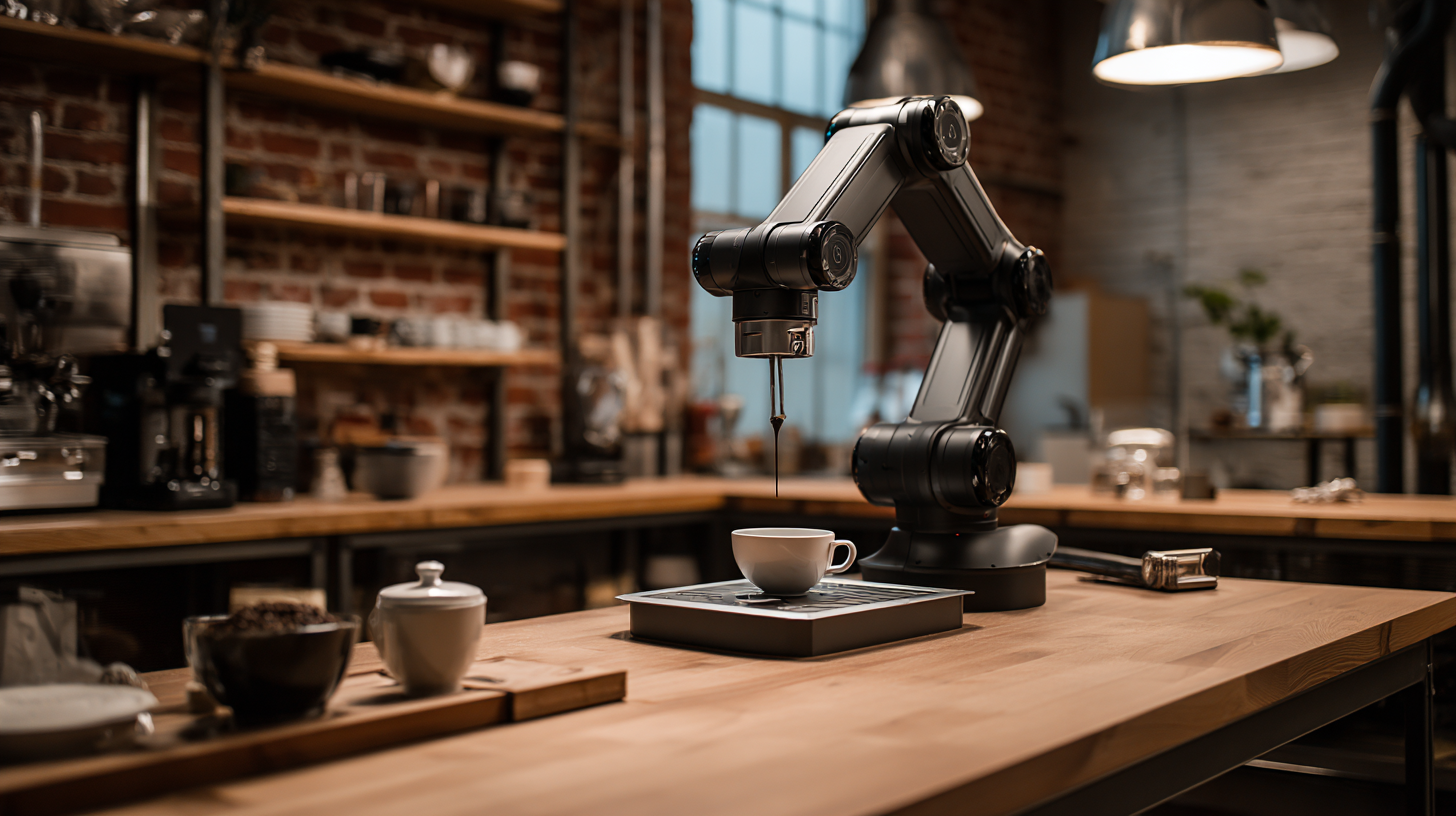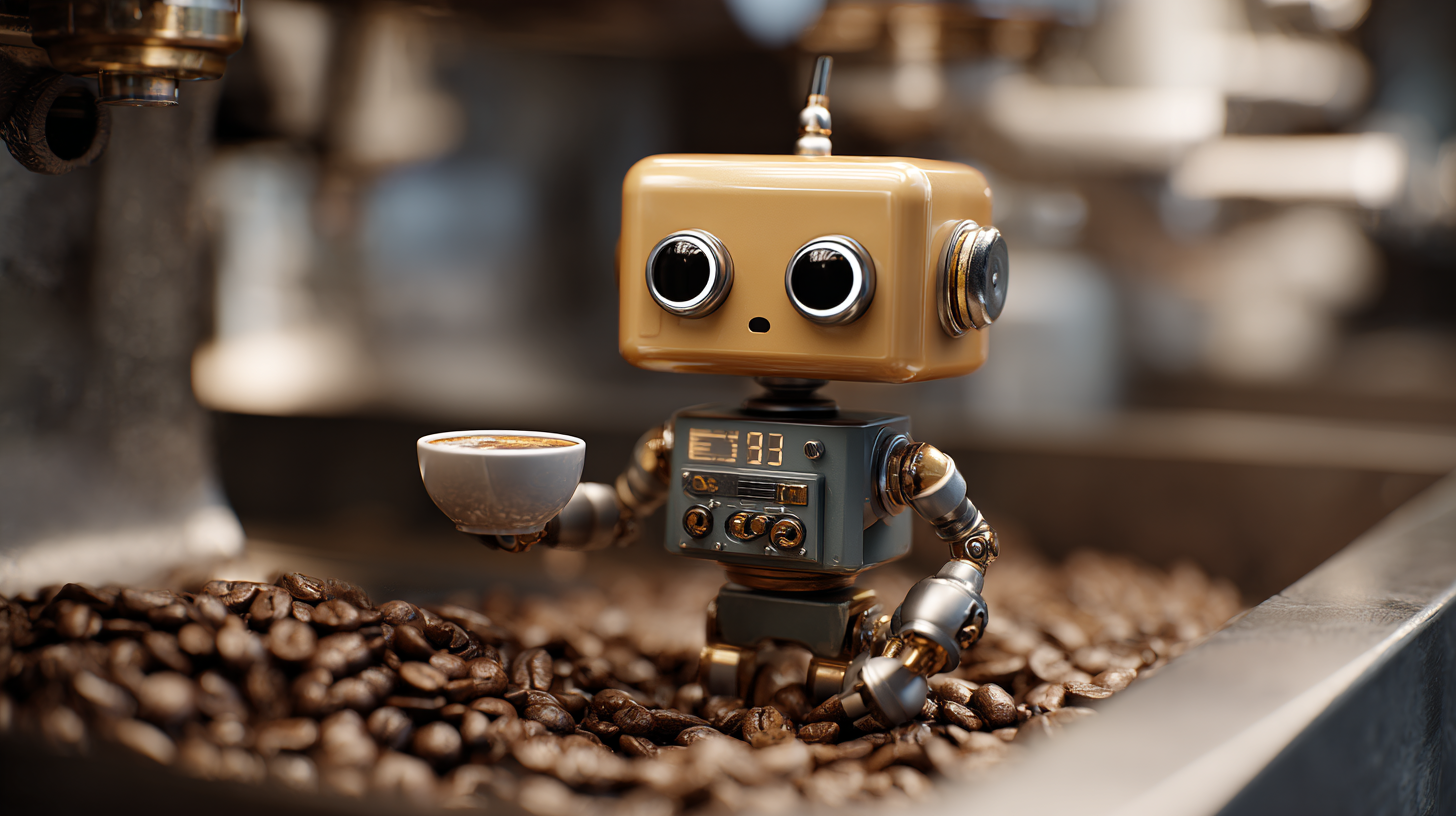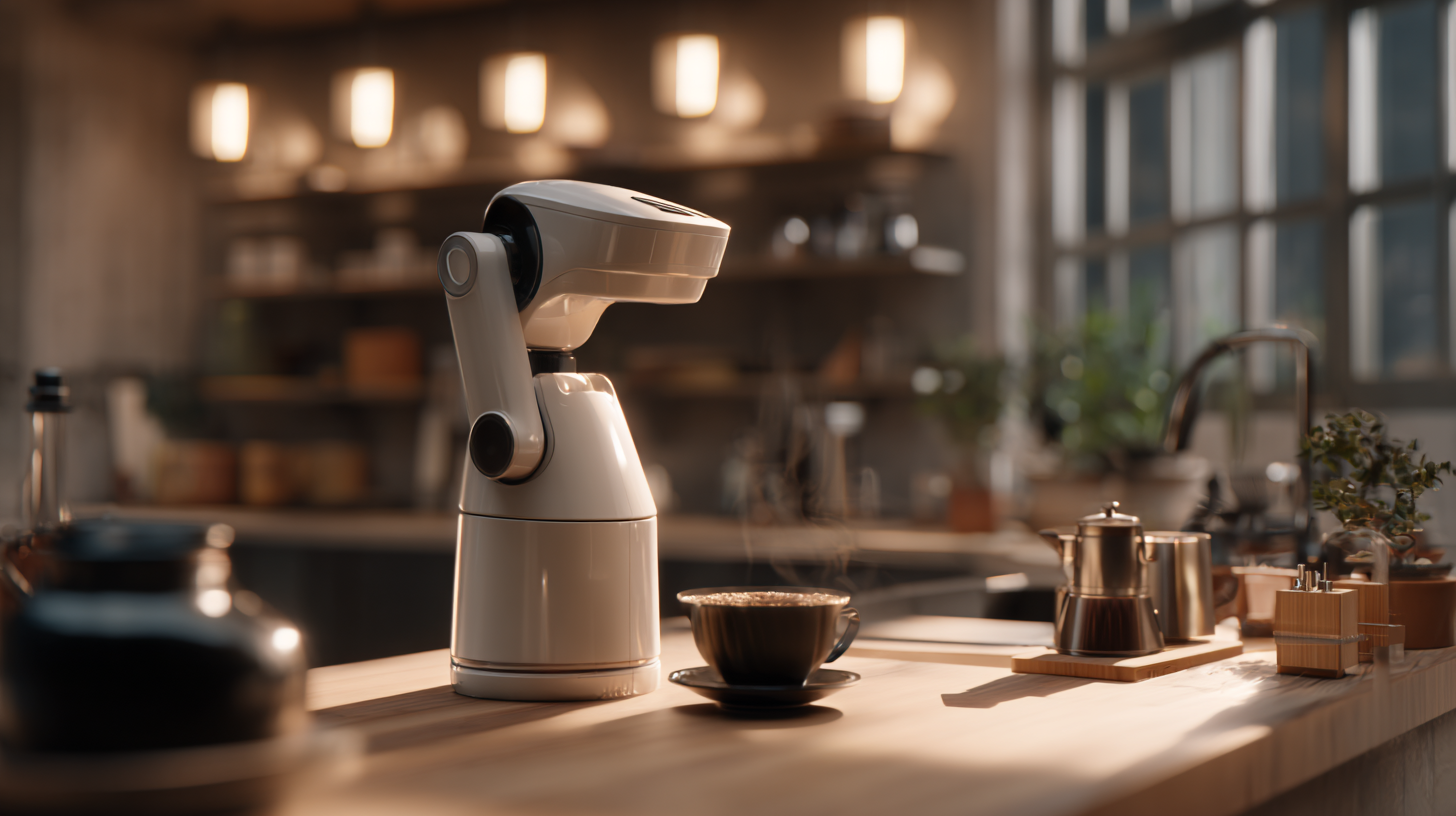
In recent years, the fusion of technology and tradition has revolutionized the way we brew coffee, with "Coffee Robots" at the forefront of this transformation. As coffee enthusiasts seek consistency and precision in their brewing techniques, these automated machines have emerged as game-changers in the industry. Renowned coffee expert Dr. Emma Clarke states, “The integration of Coffee Robots enhances not only the brewing process but also elevates the overall coffee experience, catering to both amateurs and connoisseurs alike.”
The advent of Coffee Robots challenges traditional brewing methods, pushing baristas and home brewers to adapt to this new era of convenience and efficiency. With their ability to replicate complex brewing techniques with precision, these machines can achieve flavors that may have been difficult to replicate manually. The implications of this technology extend beyond mere convenience; they also raise questions about the future role of human baristas in shaping coffee culture and ensuring quality.
As we delve deeper into the impact of Coffee Robots on modern brewing techniques, it becomes essential to explore how these innovations not only streamline the brewing process but also influence consumer preferences and industry standards. This exploration will uncover the balance between machine efficiency and the artistry of traditional brewing, ultimately revealing what the future may hold for both coffee lovers and the industry at large.

The rise of coffee robots has significantly altered modern brewing techniques, reflecting a growing trend in the coffee industry toward automation. A prime example is the recent introduction of an automated barista in Riyadh’s oncology center, showcasing how technology is being integrated into various sectors. This automated solution not only enhances efficiency but also meets the increasing demand for high-quality coffee in a fast-paced environment.
According to recent statistics, the demand for coffee continues to soar, particularly in countries like South Korea, where the average person consumes 428 cups annually. This impressive consumption rate illustrates coffee's status as a staple beverage, spurring innovations such as smart cafes that employ robotic brewing systems. As establishments adopt these automated brewing solutions, they position themselves competitively in the industry, catering to consumer preferences for convenience and quality.
The integration of AI technology in coffee brewing is revolutionizing how we enjoy our daily cup. Recent industry reports indicate that the global coffee machine market, projected to reach $19.8 billion by 2025, is greatly influenced by advancements in automation and smart technology. Coffee robots are now capable of not only brewing but also customizing beverages to individual preferences, using data collected from previous orders. According to a study by the National Coffee Association, nearly 60% of coffee drinkers are open to trying automated brewing solutions, highlighting a shift in consumer confidence towards technology in their coffee experience.
While exploring current trends, one notable innovation is the use of machine learning algorithms in coffee preparation. These algorithms analyze variables such as water temperature, grind size, and brew time to deliver optimal flavor profiles. Even cafes are adapting, with a reported 30% increase in customer satisfaction when utilizing AI-driven brewing techniques. As consumers become increasingly tech-savvy, the demand for such innovations in coffee brewing will continue to rise.
**Tips**: For an enhanced coffee experience, consider investing in an AI-powered coffee machine that learns your preferences over time. Moreover, don't overlook the importance of sourcing high-quality beans; they can significantly influence your brew's final taste. Lastly, regularly maintain your coffee equipment to ensure consistency and peak performance.

The advent of coffee robots has revolutionized the brewing industry, offering significant efficiency gains by reducing both time and waste in the brewing processes. According to a report from the Specialty Coffee Association, coffee robots can decrease brewing time by up to 30%, allowing cafes and restaurants to serve customers faster without compromising quality. This rapid service not only enhances customer satisfaction but also increases the establishment's ability to handle higher volumes, leading to improved profitability.
One of the critical advantages of utilizing coffee robots is their precision in measuring and dispensing ingredients, which minimizes waste. A study from the World Coffee Research found that traditional brewing methods can result in up to 20% ingredient loss, primarily due to over-extraction and spillage. In contrast, robotic systems use advanced algorithms to optimize brewing variables, ensuring that every gram of coffee counts. This efficiency not only conserves resources but also promotes sustainable practices in the coffee industry.
**Tips for Seamless Integration of Coffee Robots:**
- Regularly maintain the robotic system to ensure optimal performance and longevity.
- Train staff on how to work alongside the technology, combining the art of barista skills with the efficiency of automation for the best customer experience.
- Collect and analyze customer feedback on the robot-brewed coffee to continuously refine the processes and menu offerings.

The rise of automated coffee solutions reflects a significant shift in consumer preferences towards convenience and consistency in brewing. Modern coffee robots are designed not just to save time but also to enhance the overall coffee experience. Consumers are increasingly seeking machines that can replicate the expertise of baristas while offering customization options to cater to individual tastes. The demand for these solutions is driven by a generation that values efficiency without compromising quality, illuminating a trend where time-saving technology meets gourmet coffee culture.
Additionally, the growing interest in specialty coffee has fueled the market for automated brewing products. Coffee enthusiasts desire tools that can deliver precise brewing parameters, such as temperature and extraction time, ensuring that each cup meets their standards. These advancements allow consumers to experiment with different beans and brewing methods right from the comfort of their homes. As home brewing becomes more sophisticated, the coffee industry must adapt, highlighting the importance of innovation in meeting the evolving expectations of coffee lovers around the globe.
The emergence of automation within the coffee industry has sparked a significant debate around the evolving role of baristas and the traditional skills associated with coffee crafting. As specialty coffee increasingly prioritizes consistency over artisanal methods, there is a growing concern that the intimate connection between the barista and the brewing process may be compromised. The integration of advanced machinery, from high-end espresso machines to automated milk frothers, allows for faster service and reduced variability in beverage quality. However, this shift raises a critical question: how can baristas maintain their craft while embracing these technological advancements?
Finding a balance between tradition and technology is essential for preserving the heart of specialty coffee. Automation can serve to enhance baristas’ capabilities rather than replace them; for instance, technology can streamline repetitive tasks, allowing baristas to focus on customer interaction and the sensory aspects of coffee tasting. In a café environment where hospitality is key, the human element remains crucial. The challenge lies in harmonizing the efficiency brought by automation with the artisanal touch that defines specialty coffee, ensuring that the craft and experience remain at the forefront of the brewing culture.
| Aspect | Traditional Methods | Coffee Robots | Impact on Barista Skills |
|---|---|---|---|
| Brewing Precision | Highly dependent on barista skills | Consistent and precise | Reduced skill required for brewing |
| Customization | Highly customizable based on experience | Limited customization options | Reduces opportunity for creative brewing |
| Time Efficiency | Time-consuming and labor-intensive | Quick and efficient brewing | Less time for learning brewing techniques |
| Quality Control | Variable based on barista | Uniform quality | Minimized opportunity for personal touch |
| Learning Curve | Steep; requires practice | Minimal; user-friendly interfaces | Less emphasis on mastering techniques |





